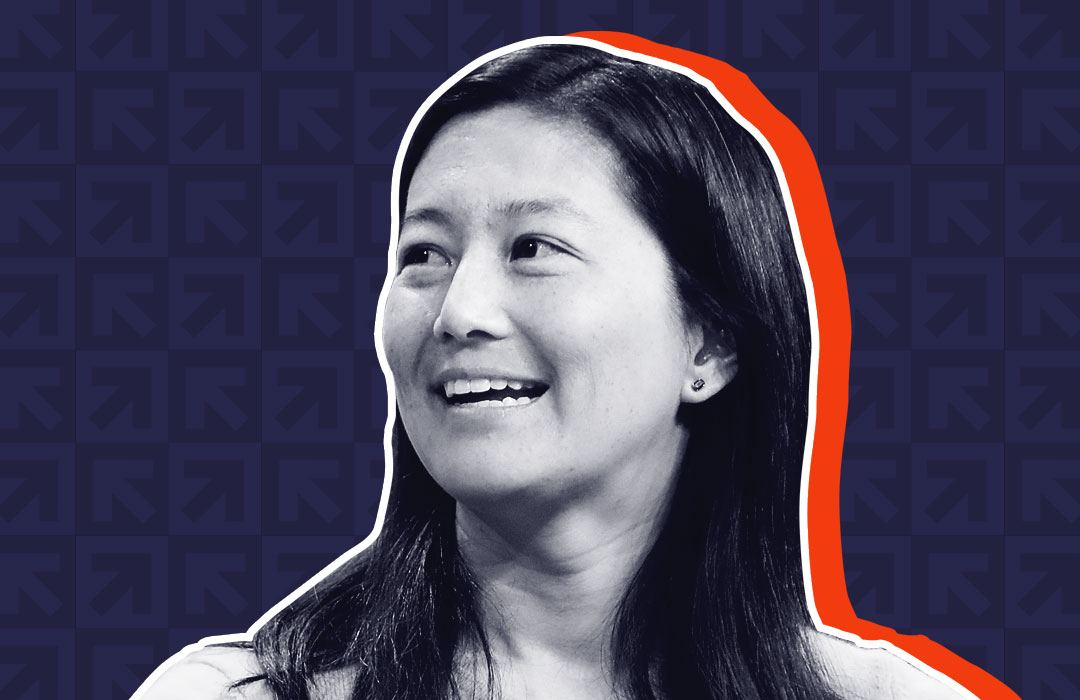Raising money for a startup is full of frustrations. Securing a meeting with venture capitalists or angel investors can seem impossible unless you know the right (read: rich, connected) people or at least have a resume flashing the likes of Stanford and Apple. Would-be investors are known for dragging out negotiations or ghosting companies for any number of reasons, including the perception that the founders just aren't charismatic enough.
And the big Catch-22 is that many VCs won't give cash to a startup until it basically proves it's a viable business — by which time the company isn’t as desperate for funding.
Elizabeth Yin and Hustle Fund, the early-stage venture capital firm she co-founded in 2017, aim to remove all of these hurdles and help good business ideas get off the ground. Instead of investing $1 million or more in a few established startups like most VCs do, Hustle Fund sprinkles cash into hundreds of little companies that are only getting started.
"For us, the ideas come first. We don't look at the founder's LinkedIn or where they went to school," Yin tells Money.
There's virtually no barrier to entry for startups looking for funding, either. "The application process is on our website," says Yin. "Anyone can fill it out."
Each month, Hustle Fund reviews 700 applications and greenlights about seven of them for funding, typically within 48 hours of a call with the founders. The first check is usually $50,000, and Hustle Fund opens its network and offers guidance to help young companies raise more money, scale the business up as it grows and more. After working closely with a startup for a few weeks, Hustle Fund then decides if it wants to make a bigger investment.
The Hustle Fund team invests in digital businesses and generally steers clear of companies with physical products. Among the thousands of firms with Hustle Fund support are Rupa Health, a platform where holistic medicine practitioners can order lab testing for patients; TheXPlace, a job site specifically for video game industry workers; and Fintor, an app that lets people buy fractional shares of real estate.
Speaking of small investments, for those who dream of becoming venture capitalists themselves but aren't billionaires (yet), Hustle Fund also operates Angel Squad. It's a community of 1,000+ people who put up their own money to join Hustle Fund-backed ventures and learn the ropes of investing in startups.
Sure, Angel Squad helps Hustle Fund raise money and expand its network, but it's also part of a movement to change the VC model, which Yin says is "broken in a lot of ways."
The world of venture capitalists has long been dogged by accusations of being sexist and racist and full of jerks, and Yin says applicants must pass an unofficial "no assholes” sniff test. Angel Squad applicants are vetted before they can join — not to see if they're wealthy (members can start by putting up as little as $1,000) but to ensure they’re in it for the right reasons.
The goal is to foster a genuinely supportive community that helps democratize startup investing and is free of rude or manipulative behavior. Oh, and that also makes money.
"We teach people the Hustle Fund way of doing business," Yin says.
Those lessons happen weekly at Angel Squad workshops, where Hustle Fund staffers or other investors discuss topics like how to assess a startup in its early stages, how much risk is worth taking on, and how to build the best network possible. Sometimes, members can listen in and learn as Hustle Fund executives field live pitches from real startup founders — like a less cutthroat version of Shark Tank.
It's all part of Hustle Fund's mission to open doors that have been closed to many entrepreneurs and aspiring investors alike.
There's simply "a better way to mobilize funds" for startups that aren't proven but show great promise, Yin says, adding: "We're like the rich uncle you never knew you had."






